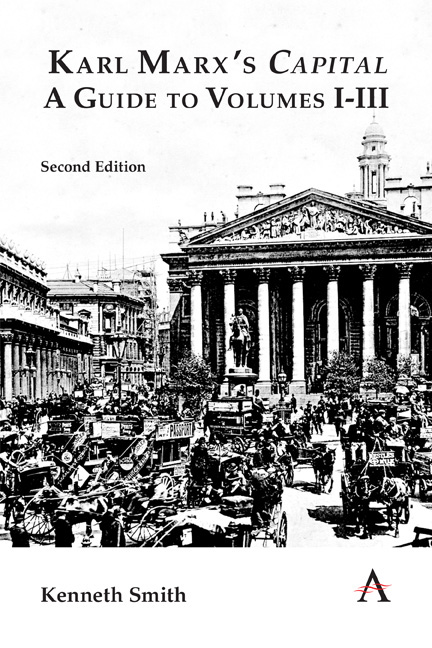Book contents
- Frontmatter
- Dedication
- Contents
- Preface to the Second Edition
- Introduction
- Part I The Development of the Capitalist Mode of Production
- Part II The Capitalist Mode of Production
- Part III The Underdevelopment of the Capitalist Mode of Production
- Part IV The Value Theory of Labour
- Conclusion to Part IV
- Conclusion
- Appendix: On Social Classes
- Notes
- Bibliography
- Index
- Frontmatter
- Dedication
- Contents
- Preface to the Second Edition
- Introduction
- Part I The Development of the Capitalist Mode of Production
- Part II The Capitalist Mode of Production
- Part III The Underdevelopment of the Capitalist Mode of Production
- Part IV The Value Theory of Labour
- Conclusion to Part IV
- Conclusion
- Appendix: On Social Classes
- Notes
- Bibliography
- Index
Summary
Reading Capital
Marxists as divergent as Louis Althusser and Karl Korsch have recommended reading Volume I of Marx's Capital in a different order to that in which it is published. Korsch (Three Essays on Marxism) suggests beginning with Capital, Vol. I, Part III, Chapter 7, on ‘the labour-process and the process of producing surplus value’ and then moving on more or less to the rest of Volume I; only then does he suggest the reader return to Parts I and II. Althusser (Lenin and Philosophy and Other Essays) suggests leaving aside Parts I and V, and reading first Parts II, III, IV, VI, VII and VIII, only then returning again to start at the beginning. Even Marx himself suggested a more comprehensible order of reading. In a letter dated 30 November 1867, addressed to his good friend Dr Ludwig Kugelmann, shortly after the publication of the first German edition of Capital, Vol. I, Marx advises Kugelmann that he might tell his ‘good wife’ that the chapters ‘Working Day’ (Vol. I, Part III), ‘Co-operation’, ‘The Division of Labour and Machinery’ (Part IV) and ‘Primitive Accumulation’ (Part VI) were the most immediately readable – although he warns Kugelmann that it would still probably be necessary for him to explain to his wife some of the more ‘incomprehensible terminology’ in these sections (MECW, 1987, 42:490). While Marx gives slightly different advice to another woman, a Mrs Wollmann, in a letter dated 19 March 1877; in which he advises her to start with the last section of the French edition of Capital (the last but one in the English translation), ‘The Process of Accumulation of Capital’.
All of these suggestions seem to have been made with much the same intention; namely, to avoid the conceptually difficult Parts I and II of Vol. I, on the subject of commodities and money, including Marx's initial discussion of the general form of value and the section on commodity fetishism. However, this perfectly understandable intention leads to the peculiar result, in Korsch's case, of beginning Capital with the sections on the labour process and the process of producing surplus value without first having looked at Marx's preliminary discussion of value and the buying and selling of labour-power itself.
- Type
- Chapter
- Information
- Karl Marx's 'Capital': A Guide to Volumes I-III , pp. 1 - 14Publisher: Anthem PressPrint publication year: 2021



